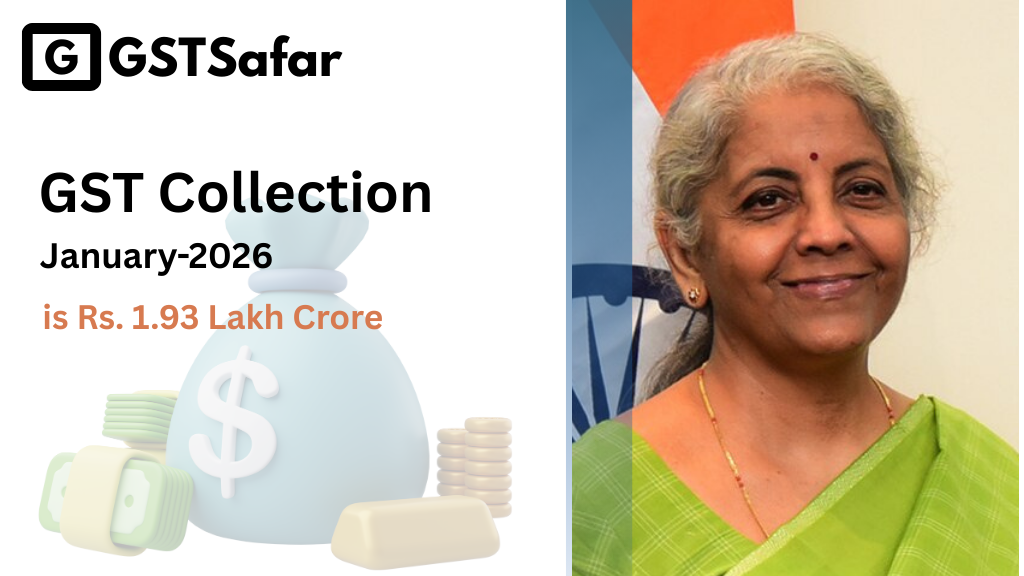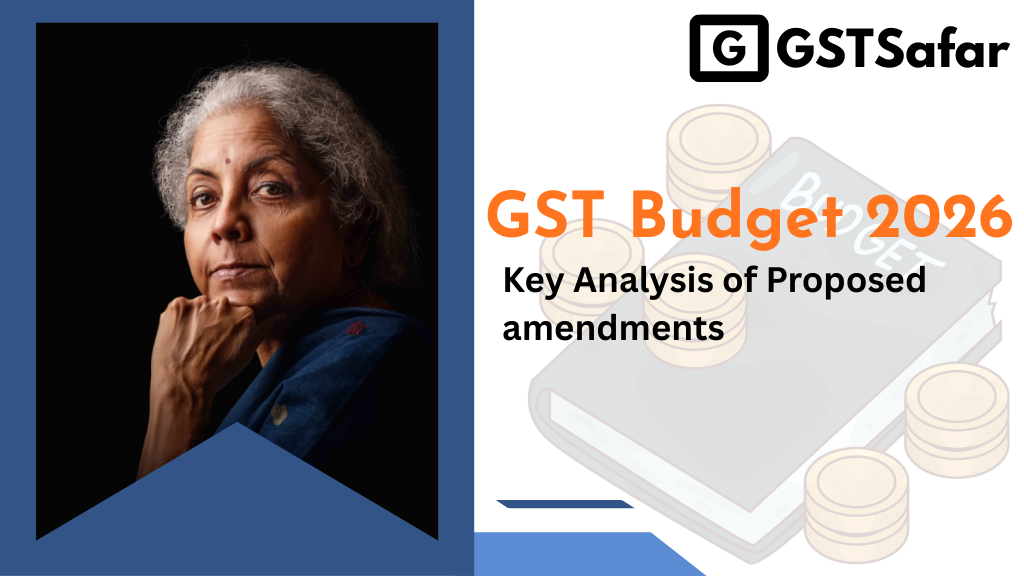Corporate Guarantee Under GST | Everything You Need to Know

The Corporate Guarantee under GST is a useful tool often used by a holding company or group of entities to help their subsidiaries or related parties with loans or credit facilities. This corporate guarantee also brings with it some important legal and tax considerations under GST, which people often ask about. The main questions that usually come to mind are whether a corporate guarantee constitutes a taxable supply, how its value should be determined, and who is liable for GST. In this article, we will explain all the important points about corporate guarantees by simplifying the notifications and circulars issued in this regard.
————————————————————————————————————————-
What is Corporate Guarantee under GST?

A Corporate Guarantee is a promise made by a company (as a guarantor) to take responsibility for another company’s debt or financial obligation if that other company fails to meet its obligations.
The government has issued circulars on whether providing certain types of guarantees is subject to tax under GST law or not. Specifically, these requests concern situations where company directors give personal guarantees to banks to help the company obtain loans, as well as cases where a related company or a holding company provides a corporate guarantee to support another related company, such as a subsidiary, in securing credit from banks or financial institutions. To mitigate the above ambiguities, the government has issued Circular No. 204//16/2023, dated 27-10-2023.
————————————————————————————————————————-
Legal References for Corporate Guarantee under GST

Notification No. 52/2023-CT dated 26-10-2023:
For a specific clause for the valuation of the supply of services for providing a corporate guarantee to any banking company or Financial Institution by an entity on behalf of a related person.
Circular No 204/16/2023-GST dated 27-10-2023:
This circular was issued on the recommendations of the GST Council to provide clarity regarding the applicability of Rule 28 (2) of CGST Rules, 2017. which has been amended retrospectively with effect from 26-10-2023 through Notification No. 12/2024 dated 10-07-2024.
Circular No 225/19/2024-GST dated 11-07-2024.
This circular has been issued for various issues pertaining to taxability and valuation of supply of services of providing Corporate Guarantee between related persons.
————————————————————————————————————————-
Let’s understand the above legal references :

1. Notification No 52/2023-CT Dated 26-10-2023
The government has issued Notification No. 52/2023-CT, dated 26-10-2023, for adding a sub-rule in Rule 28 for valuation purposes. The government has added that even if the first rule (sub-rule (1)) says something else, when a company provides a corporate guarantee to a bank or financial institution for a related company, the value of this service is set in a specific way. It’s either
- 1% of the total amount guaranteed, OR
- The actual payment received for providing this guarantee.
Whichever of these two amounts is higher will be used as the value for the service.
Download Notification No 52/2023-CT-Dated -26-10-2023
————————————————————————————————————————-
2. Circular No 204/16/2023-GST dated 27-10-2023:

The Circular provides clarification on the tax implications of the following types of Corporate Guarantee
- Directors provide personal bank guarantees to banks to help their company get credit.
- A related individual or a holding company gives a corporate guarantee to banks or financial institutions either for another related individual or for its subsidiary company, respectively. Lets understand this two Implications:
1. GST Applicability on the Personal guarantee provided by the Director of the company to a Bank or financial institution for the company without any consideration:
- As per the CGST Act, the Company director and the company itself are considered as related persons. Hence, any supply between the related persons, when done as a part of the business activity, is treated asa taxable supply, even if no payment is involved. Therefore, when a director provides a personal guarantee to bank or financial institution for securing a loan, this action is considered a supply under GST even though the director does not receive any payment for it.
- Rule 28 of CGST Rules,2017 provides guidelines on how to determine the value of goods or services exchanged between related parties. As per this rule the taxable value of such service should be based on Open market value, which means the price that the service would normally fetch if sold in the regular market.
- As per the RBI guidelines, in the case when a personal guarantee is given by the director to the bank for the company and no payment can be made for this service, as there is no market value for it, the value of the service is considered zero, and no GST is payable on this service provided by the director to the company.
- However, there are exceptions in some cases; a director who has given a guarantee might no longer be involved with the company’s management, but their guarantee is still necessary because the new management cannot provide adequate guarantees. Or in some special situations, the company might need to pay the director or the other key persons some form of compensation for their guarantee. In such cases, the taxable value of the service would be the amount of remuneration or payment given to the guarantor, and GST would be applicable to that amount.
2. GST Applicability on the Personal guarantee provided by a person on behalf of another related person or by a Holding company to a Bank or financial institution for its subsidiary company without any consideration and its valuation.
- When a person provides a corporate guarantee to the bank or financial institution on behalf of a related person, or when the holding company does this for its subsidiary company to get a credit facility, the service is considered taxable under GST and Rule 28 of the CGST Rules,2017 will be applicable for its valuation.
- The new Rule 28(2) has been added for the valuation of corporate guarantees provided by a person or holding company for its related person or subsidiary company. This applies regardless of whether the recipient of the service can claim the full ITC or not.
- Valuation as per Rule 28(2) of CGST Rules,2017:
1% of the amount of guarantee offered or the actual consideration, whichever is higher.
Rule 28(2) will not be applicable in cases where the director of the company to the bank or FI for the company to get credit. it should be determined as explained earlier, not under this new rule.
Download Circular No 204/16/2023-GST Dated 27-10-2023
————————————————————————————————————————-
3. Circular No 225/19/2024-GST dated 11-07-2024:

The government has further issued circular No.225/19/2024 dated 11-07-2024 to answer the question that is raised by industries and businesses regarding the Taxability and valuation of corporate guarantee Services between related persons. The Key points of the circular are as under:
- Rule 28(2) was introduced on 26-10-2023.If a corporate guarantee was issued before 26-10-2023, the value of the guarantee should be calculated as per the previous provision of Rule 28. However, if the corporate guarantee is issued or renewed on or after 26-10-2023, then the value must be calculated as per Rule 28(2) of CGST Rules, 2017.
- The total amount of guarantee is the value of the supply of guarantee for GST calculation. In case when corporate guarantee is provided for a particular amount, and the loan is only partly availed or not availed by the recipient. Value of the guarantee is determined by the risk covered, not the actual use of the loan. It is also clarified that the recipient of the service of providing corporate guarantee shall be eligible to avail the ITC, subject to conditions specified in the Act and the Rules, irrespective of the amount of the loan or its disbursement.
- If the loan is transferred from one bank or financial institution to another, then this transfer is not considered as providing the new corporate guarantee. So, in this case, there would be no GST. However, if the new corporate guarantee is issued or an existing corporate guarantee is renewed after the loan is taken over, then GST would need to be paid on that new or renewed guarantee.
- When a guarantee is provided by multiple related entities together, the value of the supply of services is calculated based on the following:
If the total amount paid to all co-guarantors is more than 1% of the total guarantee amount, then GST will be calculated on that higher amount.
If the total amount paid to all co-guarantors is less than 1% of the total guarantee amount, then each guarantor will need to pay the GST on their share of 1% of the guarantee amount.
Let’s understand with the example:

For instance, if there are two co-guarantors, A and B, who jointly provide a corporate guarantee to a banking/ financial institution on behalf of a related recipient C for Rs. 1 crore, then A and B shall each pay GST on 0.5% of the amount guaranteed.
However, if in the above case of A and B providing corporate guarantee jointly to a banking/financial institution on behalf a related recipient C for Rs 1 crore, A provides guarantee for 60% of the guarantee amount and B provides guarantee for the remaining 40% of the guaranteed amount, then GST shall be payable by A and B proportionately i.e., 0.6% and 0.4% of the amount guaranteed. This is to say that A shall pay GST on 1% of the amount guaranteed by A, i.e., 1% on Rs. 60 lakhs and B shall pay GST on 1% of the amount guaranteed by B, i.e., 1% on Rs. 40 lakhs.
v. In case of Intra-group corporate guarantee, there are two types:
Domestic Corporate Guarantees: A Company in India provides a guarantee to a related company within the same group. The company providing the guarantee must pay the GST in the Forward charge mechanism by issuing the invoice.
Foreign Corporate Guarantees: A Foreign company provides a corporate guarantee for a related company in India, and the recipient is responsible for paying GST under RCM.
vi. Where a corporate guarantee is provided for a Specific number of years, then the value of the service will be calculated as:
1% of the guaranteed amount multiplied by the number of years the guarantee is valid, or the actual payment made for the guarantee service, whichever is higher.
Where the corporate guarantee is provided for less than a year, like 6 months, the value of the service will be calculated on a proportional basis. It means the value would be half of 1% of the guaranteed amount or actual payment made for the service, whichever is higher. This ensures that the GST is calculated based on the length of time the guarantee is provided.
Let’s understand that with an example
If a corporate guarantee is issued for a period of say five years, then the value of such guarantee is to be calculated at one per cent per year of the amount of such guarantee offered, or the actual consideration, whichever is higher, i.e., the value of such corporate guarantee provided would be 5% of the amount guaranteed or the actual consideration, whichever is higher. Therefore, GST would be payable on such amount at the time of issuance of such corporate guarantee, i.e., 5% of the amount guaranteed or the actual consideration, whichever is higher.
- Where the corporate guarantee is issued for one year and then renewed each year for five years, GST must be paid each time the guarantee is issued or renewed. For each year, the GST is calculated based on 1 % of the guaranteed amount or the actual payment made for the guarantee, whichever is higher. It means you pay the GST on the guarantee in the first year, and then again on each renewal in the following years.
vii. A new proviso has been added to sub-rule (2) of Rule 28 of CGST Rules,2017. It states that if the recipient of the corporate guarantee can fully claim the ITC, the value declared in the invoice can be treated as the open market value. The above proviso is applicable in case a corporate guarantee is provided between related persons. This simplifies the process because the declared invoice value is accepted without needing further calculations.
viii. If the corporate guarantee service is provided to a related person who is outside India, Rule 28(2) does not apply. Different rules apply for valuing these exported services. It is as per the amendment done in Rule 28(2) which is effective retrospectively from 26-10-2023 through the Notification No 12/2024-CT dated 10-07-2024.
Download Circular No 225/19/2024- dated 11-07-2024
————————————————————————————————————————-
Conclusion: The Government, through Circulars 204/16/2023 and 225/19/2024, has clarified the GST treatment of corporate guarantee, especially between related parties:
- Personal guarantee by the director without payment is generally not taxable, while paid guarantees attract GST.
- Corporate Guarantee by holding or related companies is taxable even without consideration, and valued at 1% of the guarantee amount or actual payment, whichever is higher.
- GST applies proportionally when multiple co-guarantors are involved.
- GST is payable upfront for multi-year guarantees or annually if renewed.
- Foreign guarantees to indian entities attract GST under RCM.
- If full ITC is available, the invoice value is accepted as the Open market value.
- Rule 28(2) does not apply to guarantees for related parties abroad as per Notification No. 12/2024-CT.









